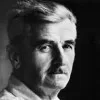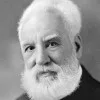“He is mad as a hare, poor fellow,
And should be in chains” you say,
I haven’t a doubt of your statement,
But who isn’t mad, I pray?
Why, the world is a great asylum,
And the people are all insane,
Gone daft with pleasure or folly,
Or crazed with passion and pain.Ella Wheeler Wilcox (1850-1919) American author, poet, temperance advocate, spiritualist
Poem (1882), “All Mad,” st. 1, Maurine and Other Poems (1882 ed.)
(Source)
Also collected in Poems of Cheer (1910) and Poems of Life (1919).
Quotations about:
insanity
Note not all quotations have been tagged, so Search may find additional quotes on this topic.
No solitary miscreant, scarcely any solitary maniac, would venture on such actions and imaginations, as large communities of sane men have, in such circumstances, entertained as sound wisdom.
Thomas Carlyle (1795-1881) Scottish essayist and historian
Essay (1829-06), “Signs of the Times,” Edinburgh Review No. 98, Art. 7
(Source)
LEAR: O, that way madness lies; let me shun that;
No more of that.William Shakespeare (1564-1616) English dramatist and poet
King Lear, Act 3, sc. 4, l. 24ff (3.4.24-25) (1606)
(Source)
The longer I live, the more I am inclined to the belief that this earth is used by other planets as a lunatic asylum.
George Bernard Shaw (1856-1950) British playwright and critic
(Attributed)
Attributed to Shaw by Judge Henry Neil in a letter (6 Sep 1919) to the Dublin Weekly Freeman. Neil said Shaw had made the statement in correspondence over pension laws for widows. While Voltaire (and others earlier) employed similar metaphors for Earth as a madhouse, this particular phrasing appears to be Shaw's.
More discussion of the quotation's origins here: This Earth Is Used By Other Planets as a Lunatic Asylum – Quote Investigator.
some people never go crazy.
what truly horrible lives
they must lead.
And what is an authentic lunatic? He is a man who has preferred to become what is socially understood as mad rather than forfeit a certain superior idea of human honor. In its asylums, society has managed to strangle all those it has wished to rid itself of or defend itself from, because they refused to make themselves accomplices to various flagrant dishonesties. For a lunatic is also a man whom society has not wished to listen to, and whom it is determined to prevent from uttering unbearable truths.
Antonin Artaud (1896-1948) French playwright, actor, director
Van Gogh, the Man Suicided by Society [Le Suicidé de la Société] (1947) [tr. Watson]
(Source)
Alternate translation:And what is an authentic madman? It is a man who preferred to become mad, in the socially accepted sense of the word, rather than forfeit a certain superior idea of human honor. So society has strangled in its asylums all those it wanted to get rid of or protect itself from, because they refused to become its accomplices in certain great nastinesses. For a madman is also a man whom society did not want to hear and whom it wanted to prevent from uttering certain intolerable truths.
In battle the victory goes to Love;
Prizes and properties fall to Love.
Love dallies the night
On a girl’s soft cheeks,
Ranges across the sea,
Lodges in wild meadows.
O Love, no one can hide from you:
You take gods who live forever,
You take humans who die in a day,
And they take you and go mad.[Ἔρως ἀνίκατε μάχαν, Ἔρως, ὃς ἐν κτήμασι πίπτεις,
ὃς ἐν μαλακαῖς παρειαῖς νεάνιδος ἐννυχεύεις,
φοιτᾷς δ᾽ ὑπερπόντιος ἔν τ᾽ ἀγρονόμοις αὐλαῖς:
καί σ᾽ οὔτ᾽ ἀθανάτων φύξιμος οὐδεὶς
οὔθ᾽ ἁμερίων σέ γ᾽ ἀνθρώπων. ὁ δ᾽ ἔχων μέμηνεν.]Sophocles (496-406 BC) Greek tragic playwright
Antigone, l. 781ff [Chorus] (441 BC) [tr. Woodruff (2001)]
(Source)
Original Greek. Alternate translations:Love! in the fight invincible:
Love! whose attacks at once enslave:
Who on the young maid's delicate cheeks thy nightly vigils keepest:
Who roamest o'er the main and mid the rustic cots!
None can escape thee, -- neither Gods immortal,
Nor men whose lives are fleeting as the day:
He raves whom thou possessest.
[tr. Donaldson (1848)]Love resistless in fight, all yield at a glance of thine eye,
Love who pillowed all night on a maiden's cheek dost lie,
Over the upland holds. Shall mortals not yield to thee?
Mad are thy subjects all.
[tr. Campbell (1873)]Love, never foiled in fight!
1 Warrior Love, that on Wealth workest havoc!
Love, who in ambush of young maid's soft cheek
All night keep'st watch!--Thou roamest over seas.
In lonely forest homes thou harbourest.
Who may avoid thee? None!
Mortal, Immortal,
All are o'erthrown by thee, all feel thy frenzy.
[tr. Storr (1859)]Love, the unconquered in battle, Love, you who descend upon riches, and watch the night through on a girl's soft cheek, you roam over the sea and among the homes of men in the wilds. Neither can any immortal escape you, nor any man whose life lasts for a day. He who has known you is driven to madness.
[tr. Jebb (1891)]Love, unconquered in the fight, Love, who makest havoc of wealth, who keepest thy vigil on the soft cheek of a maiden; thou roamest over the sea, and among the homes of dwellers in the wilds; no immortal can escape thee, nor any among men whose life is for a day; and he to whom thou hast come is mad.
[tr. Jebb (1917)]Love, unconquerable
Waster of rich men, keeper
Of warm lights and all-night vigil
In the soft face of a girl:
Sea-wanderer, forest-visitor!
Even the pure Immortals cannot escape you,
And mortal man, in his one day’s dusk,
Trembles before your glory.
[tr. Fitts/Fitzgerald (1939)]Where is the equal of Love?
Where is the battle he cannot win,
The power he cannot outmatch?
In the farthest corners of earth, in the midst of the sea,
He is there; he is here
In the bloom of a fair face
Lying in wait;
And the grip of his madness
Spares not god or man.
[tr. Watling (1947), l. 675ff]Love unconquered in fight, love who falls on our havings.
You rest in the bloom of a girl's unwithered face.
You cross the sea, you are known in the wildest lairs.
Not the immortal gods can fly,
nor men of a day. Who has you within him is mad.
[tr. Wyckoff (1954)]Invincible, implacable Love,
O Love, that makes havoc of all wealth;
That peacefully keeps his night-watch
On tender cheek of a maiden:
The Sea is no barrier, nor
Mountainous waste to Love's flight; for
No one can escape Love's domination,
Man, no, nor immortal god.
Love's Prey is possessed by madness.
[tr. Kitto (1962)]Love, never conquered in battle
Love the plunderer laying waste the rich!
Love standing the night-watch
guarding a girl's soft cheek,
you range the seas, the shepherds' steadings off in the wilds --
not even the deathless gods can flee your onset,
nothing human born for a day --
whoever feels your grip is driven mad.
[tr. Fagles (1982), l. 879ff]Eros, undefeated in battle,
Eros, who falls upon possessions,
who, in the soft cheeks of a young girl,
stays the night vigil,
who traverses over seas
and among pastoral dwellings,
you none of the immortals can escape,
none of the day-long mortals, and
he who has you is maddened.
[tr. Tyrell/Bennett (2002)]Love! You are beyond wars, beyond any place you fall!
You make nests out of the soft cheeks of young girls for your slumber
and you hover over the oceans and distant lands
and no immortal god, nor mortal man with his measured days escapes you!
And then, you catch and your catch becomes insane!
[tr. Theodoridis (2004)]O Eros, the conqueror in every fight,
Eros, who squanders all men’s wealth,
who sleeps at night on girls’ soft cheeks,
and roams across the ocean seas
and through the shepherd’s hut --
no immortal god escapes from you,
nor any man, who lives but for a day.
And the one whom you possess goes mad.
[tr. Johnston (2005), l. 894]Love, unconquered in battle, Love, who attacks wealth, who sleeps on a young girl's soft cheek and wanders beyond the sea and in the wilderness: There is no escape from you for immortals or men who live but for a day; he who has you is mad. [tr. Thomas (2005)]
What inconceivable madness! For it is not enough to call an opinion “foolishness” when it is utterly devoid of reason.
[O delirationem incredibilem! non enim omnis error stultitia dicenda est.]
Marcus Tullius Cicero (106-43 BC) Roman orator, statesman, philosopher
De Divinatione [On Divination], Book 2, ch. 43 (2.43) / sec. 90 (44 BC) [tr. Falconer (1923)]
(Source)
ONLY THE MADMAN IS ABSOLUTELY SURE.
Robert Anton Wilson (1932-2007) American author, futurist self-described "agnostic mystic" [pen name of Robert Edward Wilson]
The Eye in the Pyramid (1975) [with Robert Shea]
(Source)
Almost no one dances sober, unless he is insane.
[Nemo enim fere saltat sobrius, nisi forte insanit, neque in solitudine neque in convivio moderato atque honesto.]
Marcus Tullius Cicero (106-43 BC) Roman orator, statesman, philosopher
Pro Murena, ch. 6, sec. 13 (63 BC)
(Source)
More completely, "For no man, one may almost say, ever dances when sober, unless perhaps he be a madman, nor in solitude, nor in a moderate and sober party." [tr. Yonge].
Often shortened to "Nemo saltat sobrius" ("Nobody dances sober"). Also attributed to H. P. Lovecraft.
In context, Cicero is disputing accusations that L. Murena was dancing because there are no reports that Murena was drinking and carousing beforehand.
But he who knows what insanity is, is sane; whereas insanity can no more be sensible of its own existence, than blindness can see itself.
[Sanus est, qui scit quid sit insania, quippe insania scire se non potest, non magis quam caecitas se videre.]
Apuleius (AD c. 124 - c. 170) Numidian Roman writer, philosopher, rhetorician [Lucius Apuleius Madaurensis]
Apologia; or, A Discourse on Magic [Apologia; seu, Pro Se de Magia], ch. 80 [tr. Bohn’s (1853)]
(Source)
Alt. trans.: "He who knows what madness is, is ipso facto sane. For madness cannot know itself any more than blindness can see itself." [tr. Butler (1909)]
Sometimes I aint so sho who’s got ere a right to say when a man is crazy and when he aint. Sometimes I think it aint none of us pure crazy and aint none of us pure sane until the balance of us talks him that-a-way. It’s like it aint so much what a fellow does, but it’s the way the majority of folks is looking at him when he does it. … That’s how I reckon a man is crazy. That’s how he cant see eye to eye with other folks. And I reckon they aint nothin else to do with him but what the most folks says is right.
She is too fond of books, and it has turned her brain.
I dreamed that you bewitched me into bed
And sung me moon-struck, kissed me quite insane.
“But I don’t want to go among mad people,” Alice remarked.
”Oh, you can’t help that,” said the Cat: “we’re all mad here. I’m mad. You’re mad.”
”How do you know I’m mad?” said Alice.
”You must be,” said the Cat, “or you wouldn’t have come here.”Lewis Carroll (1832-1898) English writer and mathematician [pseud. of Rev. Charles Lutwidge Dodgson]
Alice’s Adventures in Wonderland, ch. 6 “Pig and Pepper” (1865)
(Source)
What is madness? To have erroneous perceptions and to reason correctly from them.
Voltaire (1694-1778) French writer [pseud. of Francois-Marie Arouet]
Philosophical Dictionary, “Madness” (1764)
(Source)
Books have led some to learning and others to madness, when they swallow more than they can digest.
Francesco Petrarca (1304-1374) Italian scholar and poet [a.k.a. Petrarch]
Remedies for Fortune Fair and Foul [De Remediis Utriusque Fortunae] [tr. Elton (1893)]
Alt. trans.: "Books have brought some men to knowledge, and some to madness. whilst they drew out of them more than they could digest." [tr. Dobson (1791)]
Alt. trans.: "Books have led some to knowledge and some to madness, who drew from them more than they could hold." [tr. Rawski (1991)]
I think it’s reasonable to say that vampire hunters either have an extremely short life expectancy, or constitute one of the most deadly threats you are ever likely to encounter. They are invariably howling-at-the-moon stark raving bonkers, and not in a good way.
Every man is a divinity in disguise, a god playing the fool. It seems as if heaven had sent its insane angels into our world as to an asylum, and here they will break out into their native music and utter at intervals the words they have heard in heaven; and then the mad fit returns, and they mope and wallow like dogs.
Ralph Waldo Emerson (1803-1882) American essayist, lecturer, poet
“History,” Essays: First Series (1841)
(Source)
Idiosyncratic belief systems which are shared by only a few adherents are likely to be regarded as delusional. Belief systems which may be just as irrational but which are shared by millions are called world religions. When comparing the beliefs held by psychotics with the religious beliefs held by normal people, it is impossible to say that one set of beliefs is delusional while the other is sane.
Anthony Storr (1920-2001) English psychiatrist and author
Feet of Clay: Saints, Sinners and Madmen, ch. 10 (1996)
(Source)
It’s said that “power corrupts,” but actually it’s more true that power attracts the corruptible. The sane are usually attracted by other things than power. When they do act, they think of it as service, which has limits. The tyrant, though, seeks mastery, for which he is insatiable, implacable.
David Brin (b. 1950) American scientist and author
The Postman, ch. 14 (1985)
Often paraphrased: "It is said that power corrupts, but actually it's more true that power attracts the corruptible. The sane are usually attracted by other things than power." See Frank Herbert.
Perseverance must have some practical end, or it does not avail the man possessing it. A person without a practical end in view becomes a crank or an idiot. Such persons fill our asylums.
Alexander Graham Bell (1847-1922) Scottish-American scientist, inventor, engineer
Interview, in Orison Swett Marden, How They Succeeded, ch. 2 (1901)
(Source)
A weak mind does not accumulate force enough to hurt itself; stupidity often saves a man from going mad.
If a madman were to come into this room with a stick in his hand, no doubt we should pity the state of his mind; but our primary consideration would be to take care of ourselves. We should knock him down first, and pity him afterwards.
The religion of one seems madnesse unto another.
Thomas Browne (1605-1682) English physician and author
Hydriotaphia, or Urne-Buriall, ch. 4 (1658)
(Source)
There’s no end to the list; there are millions of them! And all insane; each in his own way; insane as to his pet fad or opinion, but otherwise sane and rational. This should move us to be charitable towards one another’s lunacies. I recognize that in his special belief the Christian Scientist is insane, because he does not believe as I do; but I hail him as my mate and fellow, because I am as insane as he insane from his point of view, and his point of view is as authoritative as mine and worth as much. That is to say, worth a brass farthing. Upon a great religious or political question, the opinion of the dullest head in the world is worth the same as the opinion of the brightest head in the world — a brass farthing. How do we arrive at this? It is simple. The affirmative opinion of a stupid man is neutralized by the negative opinion of his stupid neighbor — no decision is reached; the affirmative opinion of the intellectual giant Gladstone is neutralized by the negative opinion of the intellectual giant Newman — no decision is reached. Opinions that prove nothing are, of course, without value any but a dead person knows that much. This obliges us to admit the truth of the unpalatable proposition just mentioned above — that, in disputed matters political and religious, one man’s opinion is worth no more than his peer’s, and hence it followers that no man’s opinion possesses any real value. It is a humbling thought, but there is no way to get around it: all opinions upon these great subjects are brass-farthing opinions.
Mark Twain (1835-1910) American writer [pseud. of Samuel Clemens]
Christian Science, ch. 5 (1907)
(Source)
Let us consider that we are all partially insane. It will explain us to each other; it will unriddle many riddles; it will make clear and simple many things which are involved in haunting and harassing difficulties and obscurities now.
Those of us who are not in the asylum, and not demonstrably due there, are nevertheless, no doubt, insane in one or two particulars. I think we must admit this; but I think that we are otherwise healthy-minded. I think that when we all see one thing alike, it is evidence that, as regards that one thing, our minds are perfectly sound. Now there are really several things which we do all see alike; things which we all accept, and about which we do not dispute. For instance, we who are outside of the asylum all agree that water seeks its level; that the sun gives light and heat; that fire consumes; that fog is damp; that six times six are thirty-six, that two from ten leaves eight; that eight and seven are fifteen. These are, perhaps, the only things we are agreed about; but, although they are so few, they are of inestimable value, because they make an infallible standard of sanity. Whosoever accepts them him we know to be substantially sane; sufficiently sane; in the working essentials, sane. Whoever disputes a single one of them him we know to be wholly insane, and qualified for the asylum.
Very well, the man who disputes none of them we concede to be entitled to go at large. But that is concession enough. We cannot go any further than that; for we know that in all matters of mere opinion that same man is insane — just as insane as we are; just as insane as Shakespeare was. We know exactly where to put our finger upon his insanity: it is where his opinion differs from ours.
Mark Twain (1835-1910) American writer [pseud. of Samuel Clemens]
Christian Science, Book 1, ch. 5 (1907)
(Source)
Whether we believe the Greek poet, “it is sometimes even pleasant to be mad”, or Plato, “he who is master of himself has knocked in vain at the doors of poetry”; or Aristotle, “no great genius was without a mixture of insanity”; the mind cannot express anything lofty and above the ordinary unless inspired. When it despises the common and the customary, and with sacred inspiration rises higher, then at length it sings something grander than that which can come from mortal lips. It cannot attain anything sublime and lofty so long as it is sane: it must depart from the customary, swing itself aloft, take the bit in its teeth, carry away its rider and bear him to a height whither he would have feared to ascend alone.
[Nam sive Graeco poetae credimus ‘aliquando et insanire iucundum est,’ sive Platoni ‘frustra poeticas fores compos sui pepulit,’ sive Aristoteli ‘nullum magnum ingenium sine mixtura dementiae fuit’: non potest grande aliquid et super ceteros loqui nisi mota mens. Cum vulgaria et solita contempsit instinctuque sacro surrexit excelsior, tunc demum aliquid cecinit grandius ore mortali. Non potest sublime quicquam et in arduo positum contingere, quam diu apud se est; desciscat oportet a solito et efferatur et mordeat frenos et rectorem rapiat suum eoque ferat, quo per se timuisset escendere.]
Seneca the Younger (c. 4 BC-AD 65) Roman statesman, philosopher, playwright [Lucius Annaeus Seneca]
Moral Essays, “On Tranquility of Mind [De Tranquillitate Animi],” 17.10 [tr. Langsdorf (1900)]
(Source)
All are lunatics, but he who can analyze his delusion is called a philosopher.
Ambrose Bierce (1842-1914?) American writer and journalist
The Collected Works of Ambrose Bierce, Vol. 8, “Epigrams” (1911)
(Source)
Those who dance are considered insane by those who can’t hear the music.
George Carlin (1937-2008) American comedian
Book (1997), Brain Droppings, “Short Takes (Part 1)”
(Source)
Sometimes I wonder whether the world is being run by smart people who are putting us on or by imbeciles who really mean it.
Mark Twain (1835-1910) American writer [pseud. of Samuel Clemens]
(Misattributed)
Not found in Twain's work, and the phrase "putting [someone] on" post-dates Twain.
The quotation actually appears to come from Laurence J. Peter and Raymond Hull, The Peter Principle, ch. 7 (1969). Peter writes that during a lecture, a Latin American student named Caesare Innocente, said to him:Professor Peter, I'm afraid that what I want to know is not answered by all my studying. I don't know whether the world is run by smart men who are, how you Americans say, putting us on, or by imbeciles who really mean it.
More discussion: slang - What is the origin of "putting someone on" - English Language & Usage Stack Exchange.
THESEUS: Lovers and madmen have seething brains,
Such shaping fantasies, that apprehend
More than cool reason ever comprehends.William Shakespeare (1564-1616) English dramatist and poet
Midsummer Night’s Dream, Act 5, sc. 1, l. 4 (5.1.4-6) (1605)
(Source)
There is no great genius without a touch of madness.
[Nullum magnum ingenium sine mixtura dementiae fuit.]
Aristotle (384-322 BC) Greek philosopher
(Attributed)
Attributed to Aristotle in Seneca the Younger, "On Tranquility of Mind [De Tranquillitate Animi]" (17.10) (c. AD 60). (Source (Latin)).
Alternate translations:This quotation as such is not found in surviving Aristotle. It may either represent something from Aristotle that has been lost since Seneca, or else Seneca fabricating a quote, quoting something spurious, or paraphrasing something Aristotle did write, e.g., his comments about madness/melancholy and poets/prominent talents (here and here). See also the Pseudo-Aristotle, Problemata, Book 30, ch. 1:
- "There is no great genius without a mixture of madness." [Example (1851)]
- "No great genius was without a mixture of insanity." [tr. Langsdorf (1900)]
- "No great genius has ever been without a touch of insanity." [tr. Stewart (1900), "On Peace of Mind"]
- "No excellent soul is exempt from a mixture of madness." [Example (1906)]
- "No great genius has ever existed without some touch of madness." [tr. Basore (1932)]
- "No great genius has ever existed without a dash of lunacy." [tr. Davie (2007)]
- "There was never any great genius without a tincture of insanity." [tr. @sentantiq (2018)]
- "There was never a genius without a tincture of madness."
- "No great mind has ever existed without a touch of madness."
Why is it that all those who have become eminent in philosophy or politics or poetry or the arts are clearly of an atrabilious temperament, and some of them to such an extent as to be affected by diseases caused by black bile, as is said to have happened to Heracles among the heroes? [tr. Forster (1927)]
When I, a thoughtful and unblessed Presbyterian, examine the Koran, I know that beyond any question every Mohammedan is insane; not in all things, but in religious matters. When a thoughtful and unblessed Mohammedan examines the Westminster Catechism, he knows that beyond any question I am spiritually insane. I cannot prove to him that he is insane, because you never can prove anything to a lunatic — for that is a part of his insanity and the evidence of it. He cannot prove to me that I am insane, for my mind has the same defect that afflicts his. All Democrats are insane, but not one of them knows it; none but the Republicans and Mugwumps know it. All the Republicans are insane, but only the Democrats and Mugwumps can perceive it. The rule is perfect: in all matters of opinion our adversaries are insane.
Mark Twain (1835-1910) American writer [pseud. of Samuel Clemens]
Christian Science, ch. 5 (1907)
(Source)
Often misattributed to Oscar Wilde.
Anger is momentary madness, so control your passion or it will control you.
[Ira furor brevis est: animum rege: qui nisi paret imperat.]
POLONIUS: Though this be madness, yet there is method in’t.
William Shakespeare (1564-1616) English dramatist and poet
Hamlet, Act 2, sc. 2, l. 223 (2.2.223) (c. 1600)
(Source)






































